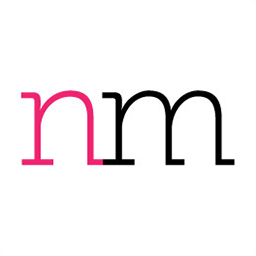The Good (& Green) Life: Say "aloha" to Constantin Bisanz, tech start-up entrepreneur
In a corner of his airy, brick-walled Flatiron District loft in Manhattan, entrepreneur Constantin Bisanz has set up a small meditation cushion next to a serene statue of Buddha. The loft is decorated with a cream-colored hammock, potted palms, antique surf and skate boards, musical instruments and a full set of deejaying equipment that reflects Bisanz’s latest passion. The room breathes a sense of relaxation, fun, and contentment.
It’s all in keeping with the image of ALOHA, an online wellness brand Bisanz founded in 2014 that sells everything from powdered green drinks, plant-derived nutrient capsules, chocolate bars, teas and coffees. “Our goal is to ‘healthify’ foods that people love,” explains the Austrian-born entrepreneur, who’s finishing up a breakfast of gluten-free oatmeal, almond milk, Manuka honey, flax seeds and fruit. “We exchange ingredients that are unhealthy with things that are good for you.” This means taking anti-oxidant, vitamin- and mineral-rich raw cacao, for example, sweetening it with a little unrefined coconut sugar and adding organic blueberries and other superfoods. There’s no place for artificial ingredients in the Aloha universe.
Bisanz really lives the life his company and digs represent, too: he meditates twice a day, works out, indulges his love of kite-surfing with other high-flying buddies like Sir Richard Branson, eats a gluten-free and whole foods diet, and has recently taken up yoga.
Yet this picture of the enlghtened life seems somehow at odds with the frenetic history of a restless entrepreneur. He started his first business when he was in middle school, usurping the mediocre school photographer by taking “model-like shots” of his classmates and eventually recruiting 60 friends, schoolmates and family members for his business team.
Next came a company that created cause-related games to raise money for charities, then an online marketplace for selling commercial vehicles. “Not sexy, but a huge category that wasn’t well-managed,” remarks Bisanz. His company became the market leader. The day he sold the company he broke for lunch and then in the afternoon, launched his fifth company, a fashion e-commerce site called Brands4Friends. In 2011 Bisanz sold the business to Ebay for $220 million. “I lead a pretty intense life,” the tanned, fit, white-and-beige-clad 42-year-old admits modestly.
This is where Bisanz’s life took a turn, though. His father, perhaps sensing the need for his son to slow down, encouraged him look into Ayurveda, a traditional form of Indian medicine that prescribes individualized treatments using herbs, diet, and lifestyle mofidications. Bisanz had never heard of it. “I thought it was a hair shampoo,” he says. He studied with a famous practitioner in Sri Lanka, then, following in the footsteps of The Beatles, traveled to Rishikesh in Northern India, where he was surrounded by Ayurvedic doctors and learned to meditate. “I was fascinated by their holistic view of life,” says Bisanz, “their belief that life must be a balance between clean eating, exercise, mindfulness and relationships.”
Back in the States, Bisanz, curious about what a cutting-edge American holistic practitioner could teach him, sought out the nutritionist to tech titan and PayPal founder Peter Thiel. Confident that he would score high health marks, Bisanz was shocked when a battery of tests revealed that his mercury levels were “through the roof,” his diet was all wrong and the supplements he was taking were woefully inadequate.
Then came his eureka moment: “Why do I have to spend money like a billionaire to get access to good nutrition? Why can’t I combine ancient Ayurvedic medical wisdom with the latest science and create a pure, clean brand around it?” To help make a “democratic” brand, he designed ALOHA to be web-based, keeping prices modest by selling direct to consumers. To share his knowledge, he launched the online ALOHA Way Magazine, with articles written by a variety of health, exercise, and nutrition experts on what he calls the “five pillars”: eating, exercise, mindfulness, relationships and personal development. For the future, he has his sights set on creating ALOHA oases, high-end resorts built-around the five pillars, aimed at fellow “awakened idealists” and people ready to bump their lives up to a healthier level.
Bisanz tries to live his own life according to those five pillars. When an Ayurvedic doctor told Bisanz that he was not grounded, that he needed fewer friends but more quality relationships, he got to work. He invited each of his family members—his parents and three sisters—to pick any spot in the world to visit. The catch: they each had to spend three weeks of alone time with him in those places. “There’s a unique bond that forms when you experience something for the first time with someone else,” he explains. “That memory is invaluable.”
The internet and social media have been just as important to Bisanz for relationship-building. He wooed his girlfriend, former television host and journalist Jeannine Nujic, through Facebook, says Nujic. The two had friends in common but it took two years before they finally met on a spur-of-the-moment trip.
“He’s the total online entrepreneur,” Nudij, now ALOHA’s marketing and brand aesthetic specialist, jokes of her boyfriend. “Every success he’s had has been made online—me included.”
Constantin’s 5 Tips for Creating Your Own Healthy Start-up Company
Set goals. “I wrote my funeral speech because it forces you to think about your whole life from the top down and what you want to accomplish. I have goals for where to I want to be at 60, 50, 45, what I want to achieve in 2016.”
Don’t be afraid to think big!
Divide your goals between each of the five pillars: eating, exercise, mindfulness, relationships and personal development. “If you focus on just career, you will burn out.”
Surround yourself with the right team of people.
Crowdfund rather than seeking individual investors. “Fundraising is much easier now because of crowdfunding—take advantage of that.”

